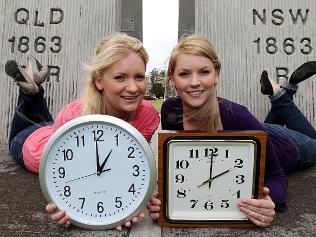Breaking News Today – How Do Australians Feel About Daylight Savings?

The newest research on Queensland’s debate over daylight savings time has found that the vast majority of residents favour it. This change is opposed by those who live in the tropics. Despite its benefits, it’s a controversial issue for many, as it disrupts sleep and productivity for those who live in the hottest parts of Australia. Fortunately, the new study has a few surprising results. Read on to find out how Brisbaneites feel about the topic.

In a survey of more than 2,000 Queensland residents, the research showed that a majority of people surveyed said they preferred daylight savings. The lead researcher estimated that the state was losing $4 billion annually as a result. In addition, more people in the southeastern part of Queensland favored the change. However, despite this, the majority voted against the change. The study also found that it would be expensive to implement, making the change unpopular among Queenslanders.
A recent poll of Australians indicated that the majority of residents in Queensland support a change in daylight savings, with many people wanting an extra hour of sunlight every day. However, this decision is not yet final, and the state’s voters have largely rejected it. A three-year trial in 1989 was abandoned, and a referendum on the issue in 1992 was narrowly defeated. The study, published in the Professional Geographer Journal, claims that introducing a change in Queensland’s daylight saving time could cost the state $4 billion a year.
Another research published in the Professional Geographer journal suggests that daylight saving time benefits Queensland’s economy. It reduces fuel use and increases tourism. Almost 75 percent of Queenslanders favor the change over other states, and there are many positive benefits to the initiative. This is good news for the Sunshine State! And as long as people have enough energy, there’s no reason why we can’t enjoy a few extra hours of sunlight every day.
In the study, scientists found that people in Queensland’s southwest corner would benefit more from the shift in daylight saving time than those living in the northeastern part of the state. The switch in time is the biggest reason for the change in sunlight, as it allows the sun to reach its peak at the right angle. And it also saves energy. This is an important factor for tourism in Queensland. It benefits all the residents of the state.
The benefits of daylight savings are significant for all of Queensland. It increases revenue and reduces the cost of electricity. In addition to the financial benefits, it also increases convenience. When compared to traditional time zones, daylight savings has more advantages for Queensland. Unlike the tropics, the eastern half of the state’s population has a significant population and has the highest concentration of nightlife. Its residents benefit from the earlier sunsets.
The benefits of daylight savings time in Brisbane are largely economic. The change helps reduce energy costs by shifting the sun’s unused light to the end of the day. Besides the economic benefits, the change has recreational benefits for Queenslanders. It also helps improves the quality of life for residents of the Gold Coast. The changes in the clocks of the state have a negative impact on travel, as flights to the CBD of Melbourne take almost 3 hours.
Although most Queenslanders support the change in time, there are some who do not. A recent poll by the Courier Mail indicated a majority of Queenslanders oppose the change in time. This trend has been a major cause of tension and controversy around election time. It’s also a big source of confusion for foreigners. There are two main reasons for this. First, the change is an attempt to adjust the state’s clocks to accommodate a more popular daylight savings schedule.
While daylight savings time has been controversial since its introduction in 1972, Queenslanders have always embraced it. In fact, their attitudes towards the practice have changed considerably since the first time they voted for it. The latest poll shows that most Queenslanders outside the south-east corner of the state are opposed to the change. The next time the clocks change, in 2022, the change will be the same as the current one.


